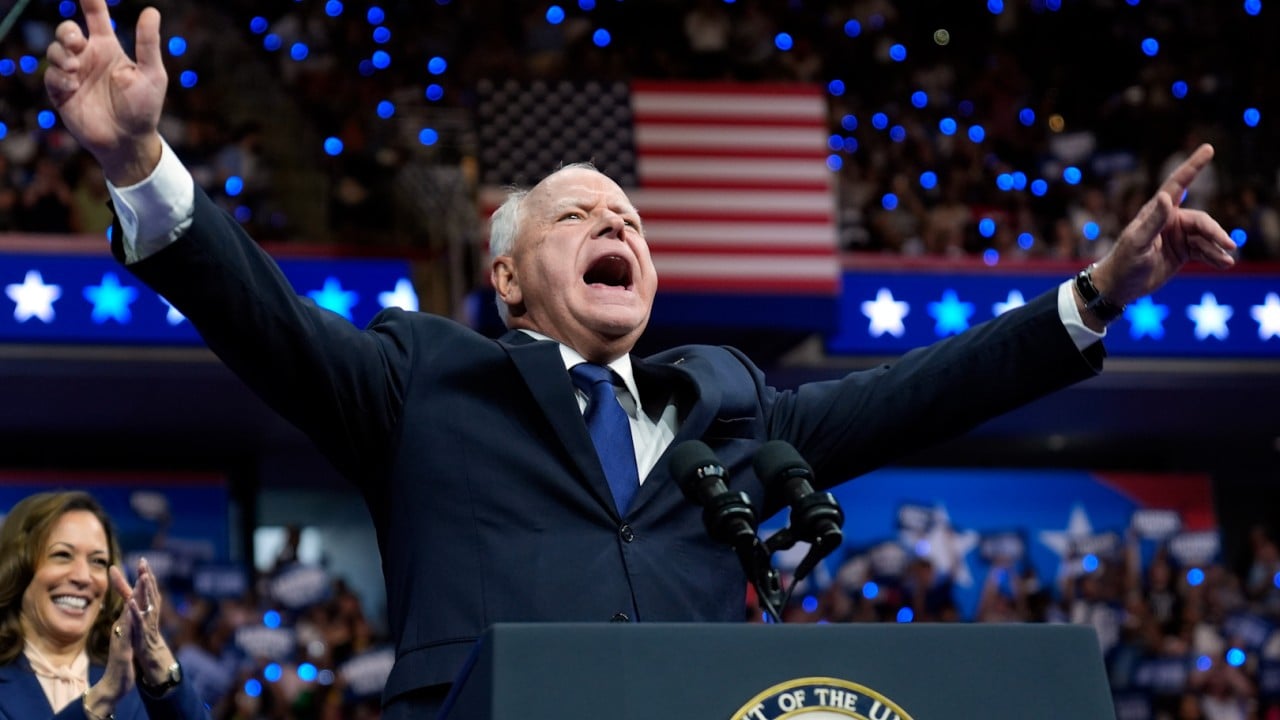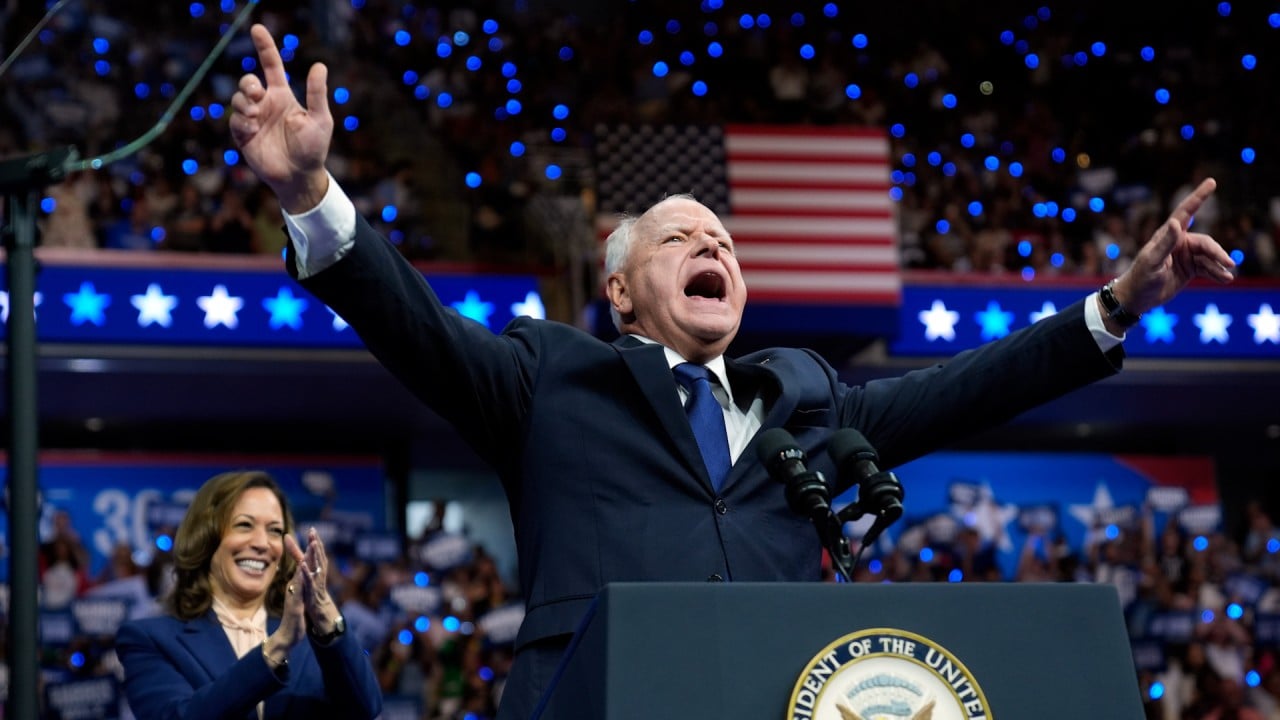Minnesota Governor Tim Walz has already faced criticism for his extensive personal experience in China. Richard Grenell, a former acting director of national intelligence in the Trump administration, asserted that “Communist China is very happy” he was chosen as the Democratic Party vice-presidential nominee. Walz taught in China and has reportedly travelled to the country about 30 times.
Without proof to the contrary, it’s just plain wrong-headed to imply that there’s something suspect about the mere fact of foreign travel. Paradoxically, the criticism is partisan, but also reflects the fact that getting tough on China is one of the few areas of common ground in a deeply divided Washington.
As a former diplomat who has spent plenty of time in China myself, I know that first-hand knowledge helps in tackling the biggest US foreign policy challenge. In an era of strategic competition with China, we need any edge we can get. Isolating ourselves and denigrating expertise only hurts American interests.
In the past, a candidate’s foreign experience – or lack thereof – could be seen as a weakness on the campaign trail. Remember the Cold War contrasts in 1988 between George H.W. Bush’s globetrotting and Michael Dukakis’s comparatively thin foreign resume? Now, with China at least, the script is flipped.
For decades, Washington was guided by a consensus that engagement would gradually make China more open politically and economically, drawing it into the US-led international order. Few imagined that China’s sustained economic surge would instead bolster authoritarianism and fuel growing tension with the United States. Engaging with China became conflated with a failed policy of alleged appeasement.
It’s time to reassert the value of experience in foreign affairs and the expertise that comes with it. That doesn’t mean experience is a panacea. “Clientism” is always a risk, and there is a good reason diplomats are rotated between foreign assignments every few years.
Knowledge isn’t synonymous with co-optation, however, and talking with someone shouldn’t imply agreement. There is simply no substitute for taking every available chance to learn about what is really happening, forging personal relationships and then using that knowledge to advocate for what the US wants.
Yes, the Communist Party runs China, and that means talking with party officials. But the party, like China itself, is not monolithic. Taking our case all the way to the source is one of our most potent sources of influence.
As the US representative in Hong Kong during the 2019 protest movement, I saw the perils of limited expertise and engagement up close. When the crisis erupted, virtually no one senior in Washington was familiar with Hong Kong politics or had personal ties with its top leaders. We issued dozens of public statements on US policy. Without the depth of personal ties built through experience, however, we were unable to overcome the fundamental distrust between the two sides.
Even before they were sanctioned by the US for their roles in undermining Hong Kong’s autonomy, many of Hong Kong’s leaders refused to meet us, possibly in part for fear of the blowback it might generate with Beijing.
Sound familiar? The communication breakdown was only exacerbated by a sustained propaganda campaign falsely accusing the US of fomenting Hong Kong’s unrest. Once an area of cooperation between Washington and Beijing, Hong Kong devolved into yet another bilateral flashpoint.
US policy towards China is based on our own interests and strongly influenced by China’s actions. It’s naive to think that knowledge and relationships alone will magically improve the relationship, but they are still the best foundation for making things work. There are only about 800 Americans now studying in China, versus nearly 290,000 Chinese studying here.
Some of my own students, among our brightest young China policy talents, privately fret that spending time in China will keep them from getting the security clearances needed for government jobs. Painting China experience with a sinister brush doesn’t help.
Beijing makes the problem even worse when it carries out public campaigns against American experts and officials with whom it disagrees.
The depth of Walz’s China experience is rare among American politicians. Just like any other field, experience is an attribute in foreign affairs. Any American’s familiarity with China should be valued by both countries and serve as a foundation for the sustained effort the US needs to succeed in its most important foreign relationship.
Hanscom Smith, consul general to Hong Kong and Macau from 2019 to 2022, is a senior fellow at Yale University’s Yale Jackson School of Global Affairs and a senior associate at the Centre for Strategic and International Studies (CSIS)



